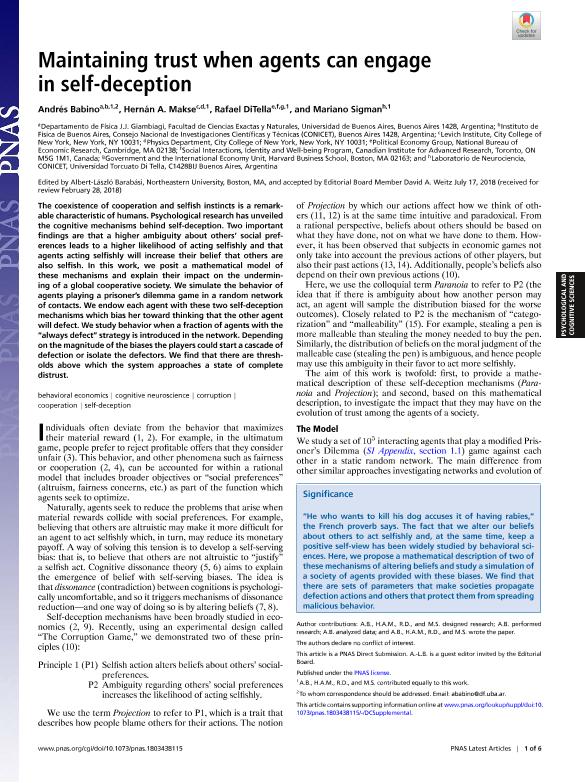Artículo
Maintaining trust when agents can engage in self-deception
Fecha de publicación:
08/2018
Editorial:
National Academy of Sciences
Revista:
Proceedings of the National Academy of Sciences of The United States of America
ISSN:
0027-8424
Idioma:
Inglés
Tipo de recurso:
Artículo publicado
Clasificación temática:
Resumen
The coexistence of cooperation and selfish instincts is a remarkable characteristic of humans. Psychological research has unveiled the cognitive mechanisms behind self-deception. Two important findings are that a higher ambiguity about others’ social preferences leads to a higher likelihood of acting selfishly and that agents acting selfishly will increase their belief that others are also selfish. In this work, we posit a mathematical model of these mechanisms and explain their impact on the undermining of a global cooperative society. We simulate the behavior of agents playing a prisoner’s dilemma game in a random network of contacts. We endow each agent with these two self-deception mechanisms which bias her toward thinking that the other agent will defect. We study behavior when a fraction of agents with the “always defect” strategy is introduced in the network. Depending on the magnitude of the biases the players could start a cascade of defection or isolate the defectors. We find that there are thresholds above which the system approaches a state of complete distrust.
Archivos asociados
Licencia
Identificadores
Colecciones
Articulos(SEDE CENTRAL)
Articulos de SEDE CENTRAL
Articulos de SEDE CENTRAL
Citación
Babino, Andrés; Makse, Hernán Alejandro; Acosta Martínez, Delvis Rafael; Sigman, Mariano; Maintaining trust when agents can engage in self-deception; National Academy of Sciences; Proceedings of the National Academy of Sciences of The United States of America; 115; 35; 8-2018; 8728-8733
Compartir
Altmétricas




